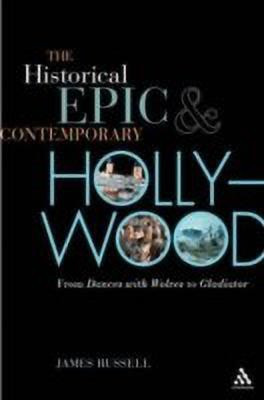The Historical Epic and Contemporary Hollywood(English, Paperback, Russell James Professor)
Quick Overview
Product Price Comparison
"The Historical Epic in Contemporary Hollywood" seeks to document and explain a recent revival of historical epic films in Hollywood. Rather than relying on abstract theoretical approaches, James Russell employs empirical historical techniques to explore how industrial conditions and the agendas of key directors, writers and producers led to the increased production of historical epics such as "Dances With Wolves" (1990), "Titanic" (1997), "Gladiator" (2000) and "The Passion of the Christ" (2004). The book begins by exploring the careers of filmmakers like Steven Spielberg, James Cameron and Mel Gibson during the 1990s. Russell looks in detail at their agendas, the production of their films and at the content of the films themselves. As the book progresses, he goes on to address the activities of the major studios, in terms of production and marketing, and looks at changing industrial conditions, such as the emergence of DVD. Finally, Russell examines social trends, particularly increasing levels of religious commitment and political division in America."The Historical Epic in Contemporary Hollywood", which has been thoroughly researched in archival collections in Los Angeles and New York, deliberately focuses on the activities of individuals working in the Hollywood film industry the result is an original and interesting account of the ways that contemporary epic films get made, and speak to modern audiences. Ultimately, the book argues that historical epics reappeared in the 1990s partly as a result of changing industrial conditions, but mainly because a generation of filmmakers, all born during the so-called 'baby boom,' began to seek out meaningful ways of passing on historical knowledge to younger generations as they grew older. The epics released in the 1950s and 1960s, when Spielberg, Cameron, et al were children, constitute a key reference point in this process of renewal and reinvention in Hollywood.


